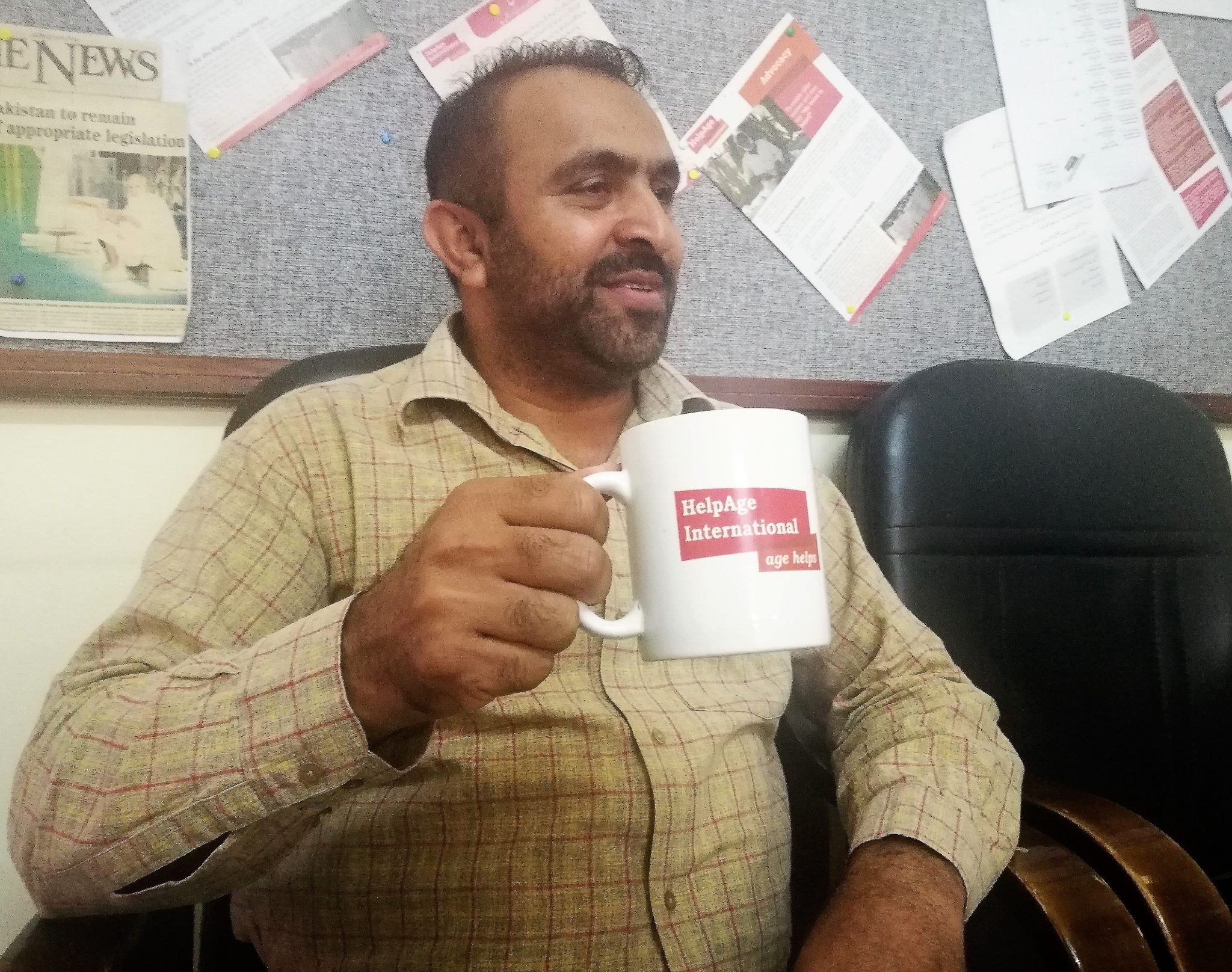“We have incorporated the CHS at all stages of our emergency work” – Coffee with Shahzado, Emergencies Programme Manager with HelpAge
Shahzado Khaskheli is an Emergencies Programme Manager with HelpAge International. He participated in a workshop hosted by CWSA on the Core Humanitarian Standard on Quality and Accountability (CHS) in April and shares his experience.

How did you find out about our training sessions about the CHS?
We were implementing Sphere minimum standards and its companion standards in our humanitarian programmes in Pakistan. In one of our joint meetings with CWSA, we heard them mention the CHS. This led to a further discussion the Nine Commitments and then we asked for some capacity-building training for staff on the CHS.
Why were you encouraged to attend the training or how was it relevant to your work?
As a programme manager for humanitarian and emergency projects, I believe the CHS is directly linked to my work around emergency preparedness and response.
What did you find most interesting in the training? Was there anything new for you?
The Nine Commitments of the CHS are very relevant to my work, so this was naturally very interesting. The companion standard entitled “Humanitarian inclusion standards for older people and people with disabilities” was new to me and extremely interesting, considering the nature of my work.
How do you apply your newly acquired knowledge about the CHS and its Nine Commitments in your daily work?
We have incorporated the Standard and the Nine Commitments at all stages of our emergency preparedness and response activities. Although we were already abiding by other humanitarian standards in our relief activities, we have now ensured compliance with the CHS in all our programming. We have developed Minimum Preparedness Standards (MPAs), in line with the CHS and we have incorporated the Nine Commitments in our “ALERT” platform, which is an online emergency preparedness tool.
How does the application of the CHS help you overcome challenges?
After the training, we started working on risk monitoring and hazard ranking for Pakistan. We developed a scenario-based response plan that is more people-focused, effective and relevant to our programming.
Did you face any challenges in applying the CHS?
At first it seemed tough to incorporate the CHS at all stages of our emergency work. When faced with limited time and resources, it may seem very challenging, if not impossible. Yet, as it gradually becomes part and parcel of our daily work, it becomes clear that by continuously involving the people we serve we increase the quality of our work, which eventually makes our work more rewarding.
